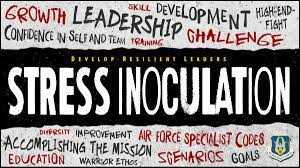
Stress is an inevitable part of life, and it can have a profound impact on our mental and physical well-being. However, rather than succumbing to the negative effects of stress, we have the power to build resilience and adapt to challenging situations. One way to do this is through stress inoculation training, a psychological technique that helps individuals develop coping mechanisms to effectively deal with stressors.
Resilience is the ability to bounce back from adversity and maintain a sense of well-being in the face of challenges. It is not a trait that we are born with, but rather a skill that can be cultivated and strengthened over time. Stress inoculation training involves exposing individuals to controlled levels of stress in order to build their resilience and enhance their ability to adapt to stressful situations.
During stress inoculation training, individuals are gradually exposed to increasingly stressful situations, allowing them to develop effective coping strategies and build mental toughness. This training helps individuals learn to identify and challenge negative thought patterns, develop positive self-talk, and utilize relaxation techniques to manage stress. By gradually exposing individuals to stress and teaching them how to cope with it, stress inoculation training helps build resilience and prepares individuals to handle future stressors.
In today’s fast-paced and demanding world, developing resilience is essential for maintaining mental well-being. Stress inoculation training provides individuals with the tools they need to effectively cope with stress and adapt to challenging situations. By building resilience through stress inoculation, individuals can lead healthier, happier lives and thrive in the face of adversity.
Understanding Resilience
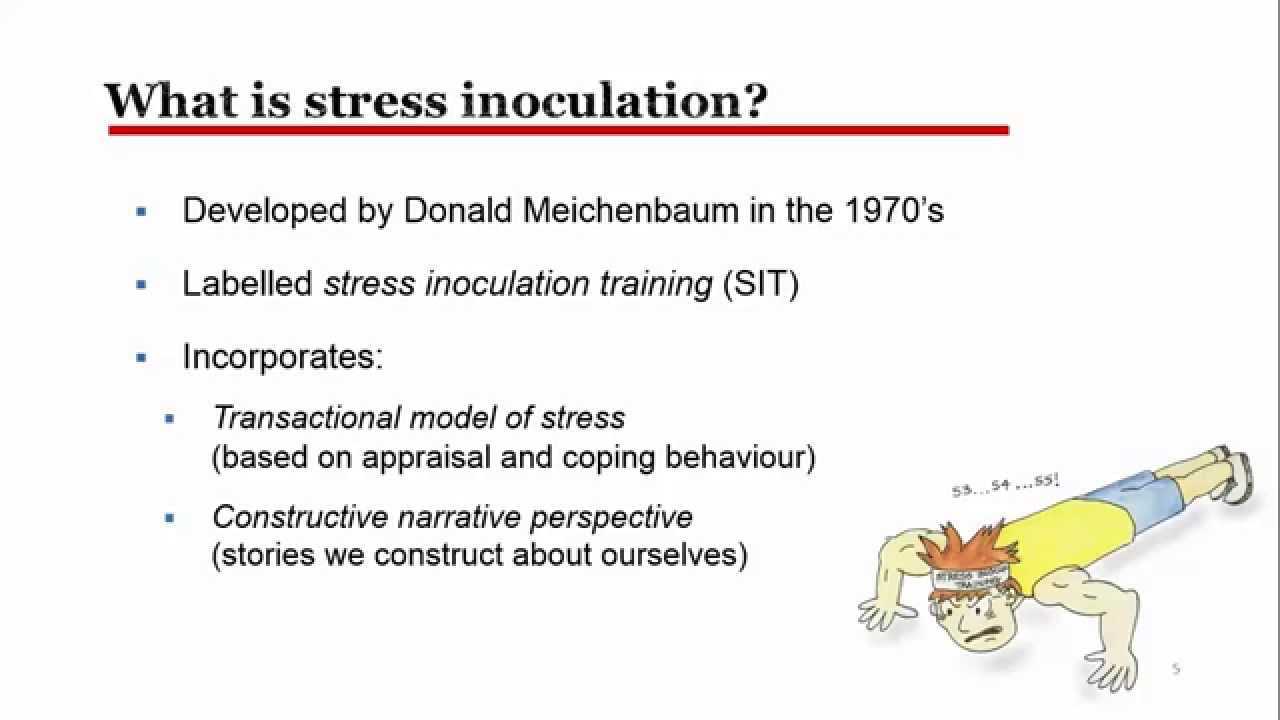
Resilience is the ability to adapt and bounce back in the face of adversity, stress, or trauma. It is a mental and psychological strength that can be developed and inoculated through stress training.
Resilience is not about avoiding stress or eliminating it completely. Instead, it is about building endurance and developing the skills to cope with and overcome stress. It is like a muscle that can be strengthened through practice and training.
When individuals are exposed to stress, their resilience is put to the test. It is during these challenging times that resilience becomes crucial in maintaining mental well-being and preventing the negative effects of stress from taking over.
Psychological resilience allows individuals to bounce back from setbacks, adapt to new situations, and maintain a positive outlook on life. It involves being able to recognize and manage stress, as well as having a strong support system in place.
Through stress inoculation training, individuals can learn to anticipate and prepare for stressful situations, develop effective coping strategies, and build resilience. This training involves exposing individuals to controlled amounts of stress, gradually increasing their tolerance and ability to handle it.
By understanding resilience and actively working on building it, individuals can enhance their mental well-being and improve their overall quality of life. Resilience is a valuable trait that can help individuals navigate through life’s challenges and come out stronger on the other side.
What is Resilience?
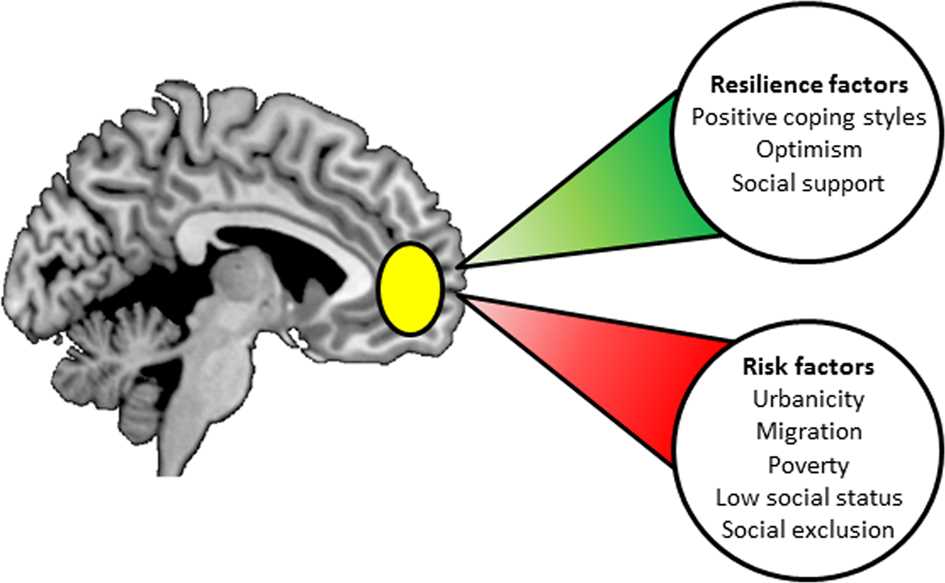
Resilience is a mental capacity that allows individuals to cope with and adapt to stress and adversity. It is the ability to bounce back from difficult experiences and setbacks, and to maintain a positive outlook on life. Resilience can be cultivated through various training techniques and practices.
Resilience can be thought of as a psychological immune system. Just as the body can be inoculated against certain diseases, the mind can be inoculated against stress and its negative effects. By building resilience, individuals are better equipped to handle challenges and recover more quickly from setbacks.
Resilience is not about avoiding stress or never experiencing difficulties. It is about developing the skills and mindset to navigate through challenging situations and emerge stronger on the other side. Resilient individuals are able to adapt to change, maintain a sense of control over their lives, and find meaning and purpose in the face of adversity.
Building resilience involves developing a range of coping strategies and skills. These can include learning effective problem-solving techniques, practicing self-care and self-compassion, fostering social support networks, and cultivating a positive mindset. Resilience is a lifelong process that can be continually developed and strengthened.
The Importance of Resilience
Resilience is a crucial trait that plays a significant role in our ability to navigate through the challenges and stresses of life. It is like a mental endurance training that prepares us to cope with adversity and bounce back stronger.
Life is full of unpredictable events and difficulties that can leave us feeling overwhelmed and drained. However, individuals who have been inoculated with resilience are better equipped to adapt and thrive in the face of adversity.
Resilience is not about avoiding stress or pretending that everything is fine. Instead, it is about developing the skills and mindset to effectively deal with stress and bounce back from setbacks. It is the ability to remain calm, focused, and optimistic in the face of challenges.
Building resilience requires practice and training. Just like physical exercise strengthens our muscles, stress inoculation helps us build mental strength and resilience. By exposing ourselves to controlled amounts of stress, we can gradually develop the ability to adapt and overcome obstacles.
Resilience is not only important for overcoming individual challenges but also for maintaining overall well-being. It helps us maintain a positive outlook, reduces the risk of mental health issues, and improves our ability to cope with everyday stressors.
In conclusion, resilience is a crucial trait that enables us to navigate through life’s challenges with greater ease. Through stress inoculation and training, we can develop the mental endurance and adaptation skills necessary to build resilience and thrive in the face of adversity.
Stress Inoculation Training
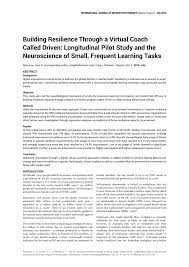
Stress Inoculation Training (SIT) is a psychological technique aimed at building resilience and enhancing the ability to cope with stress. It involves a systematic process of gradually exposing individuals to controlled levels of stress in order to develop their adaptation and endurance.
During stress inoculation training, individuals are exposed to various stressors, both physical and psychological, in a controlled and supportive environment. This allows them to gradually build up their tolerance to stress and develop effective coping strategies.
The training typically consists of three phases: conceptualization, skills acquisition, and application. In the conceptualization phase, individuals learn about the nature of stress and its impact on mental well-being. They also gain an understanding of the factors that contribute to stress and resilience.
In the skills acquisition phase, individuals learn a range of coping techniques and strategies that can be used to manage stress. These may include relaxation exercises, cognitive restructuring, problem-solving skills, and social support networks. By practicing these skills in a supportive environment, individuals can gradually develop their ability to cope with stress and build resilience.
In the application phase, individuals are encouraged to apply the skills they have learned in real-life situations. This may involve facing stressful situations and gradually increasing the level of challenge over time. Through this process, individuals can develop the mental resilience and endurance needed to effectively manage stress and adapt to difficult circumstances.
Stress inoculation training has been found to be effective in improving individuals’ ability to cope with stress and enhance their resilience. By gradually exposing individuals to controlled levels of stress, they can develop the psychological tools and skills needed to effectively manage stress and bounce back from adversity. This training can be particularly beneficial for individuals in high-stress professions or those who are prone to experiencing chronic stress.
What is Stress Inoculation Training?
Stress Inoculation Training (SIT) is a psychological technique aimed at helping individuals to build resilience and cope with stress. It involves a series of mental exercises and strategies that help individuals develop endurance and adaptability in the face of stressors.
The concept behind stress inoculation is similar to how a vaccine works. Just as a vaccine introduces a small, harmless dose of a virus to build immunity, stress inoculation training exposes individuals to controlled levels of psychological stress to strengthen their mental resilience.
During stress inoculation training, individuals are gradually exposed to increasingly challenging stressors. They learn and practice different coping mechanisms and strategies to manage the stress and build their resilience over time. This training helps individuals develop a psychological “immunity” to stress, allowing them to better handle and adapt to stressful situations in the future.
Stress inoculation training typically involves a combination of cognitive-behavioral therapy techniques, such as cognitive restructuring and relaxation exercises, as well as practical skills training. Participants may engage in role-playing exercises, problem-solving tasks, and guided imagery to simulate stressful situations and practice effective coping strategies.
By undergoing stress inoculation training, individuals can enhance their ability to handle and bounce back from stressful events. This training can be particularly beneficial for individuals in high-stress professions, such as military personnel, emergency responders, and healthcare professionals, who regularly face challenging and demanding situations.
In conclusion, stress inoculation training is a psychological approach that helps individuals build resilience and cope with stress. Through a series of mental exercises and strategies, individuals are inoculated against the negative effects of stress, improving their ability to adapt and thrive in demanding situations.
The Benefits of Stress Inoculation Training
Stress Inoculation Training (SIT) is a psychological method designed to help individuals build resilience and mental endurance in the face of stress. Through this training, individuals are inoculated against the negative effects of stress, allowing them to better adapt and cope with challenging situations.
One of the main benefits of SIT is its ability to enhance psychological resilience. By exposing individuals to controlled levels of stress in a training environment, SIT helps them develop effective coping strategies and build mental strength. This enables individuals to better manage stressors in their personal and professional lives.
SIT also helps individuals develop a proactive mindset towards stress. Rather than being overwhelmed by stress, those who have undergone SIT are better equipped to approach stressful situations with a sense of control and confidence. This allows them to maintain a clearer focus, make better decisions, and perform at their best, even under pressure.
Furthermore, SIT promotes adaptive thinking and problem-solving skills. By experiencing and overcoming stress in a controlled setting, individuals learn to think more flexibly and creatively, finding innovative solutions to challenges. This mental adaptation not only improves their ability to handle stress but also enhances their overall problem-solving abilities in various aspects of life.
Overall, the benefits of stress inoculation training are numerous. By building resilience and mental endurance, individuals are better equipped to face and overcome stress. This not only improves their psychological well-being but also enhances their performance and productivity in both personal and professional domains.
How to Implement Stress Inoculation Training
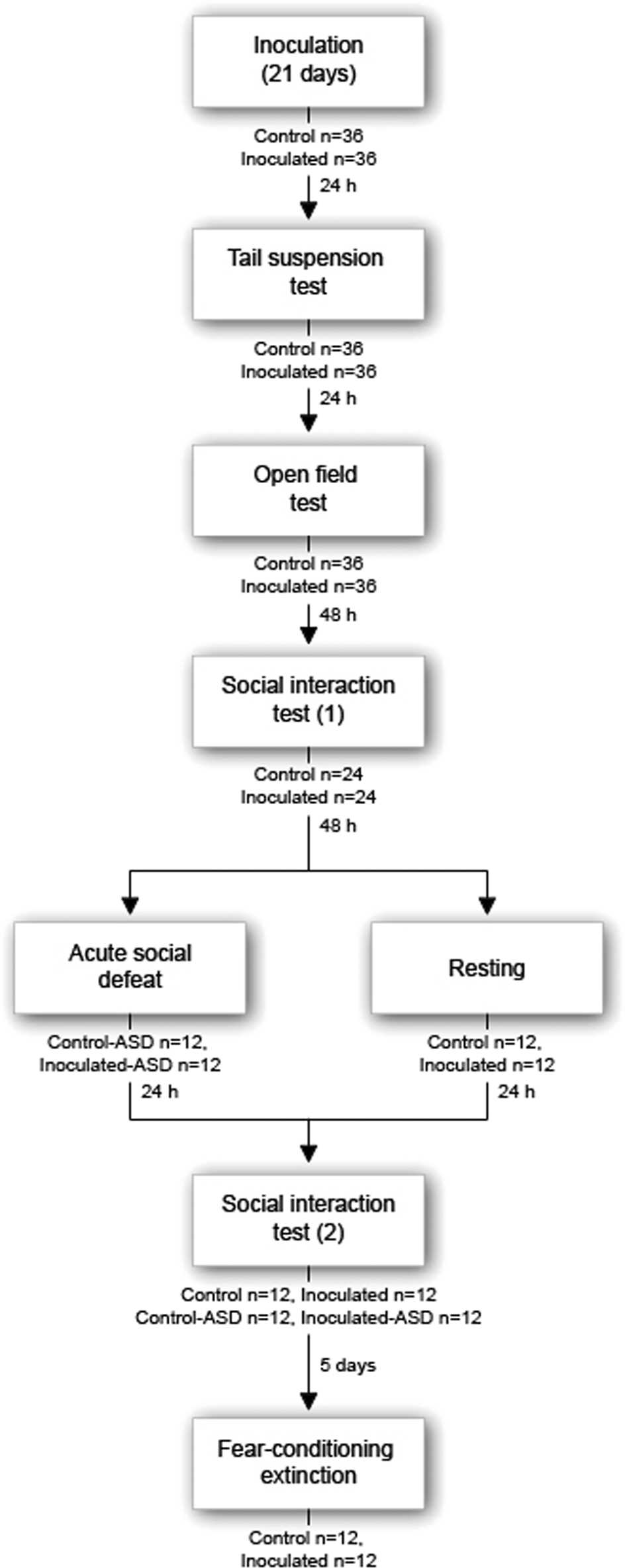
Implementing stress inoculation training is a crucial step in building mental resilience and enhancing psychological endurance. This training aims to equip individuals with the necessary coping skills to effectively manage stress and adapt to challenging situations.
Here are the key steps to implement stress inoculation training:
| Step 1: | Assessment |
| Step 2: | Educational Phase |
| Step 3: | Skills Acquisition Phase |
| Step 4: | Application Phase |
Step 1: Assessment
The first step in stress inoculation training is to assess an individual’s current level of stress and their specific stressors. This assessment helps identify the areas that require attention and provides a baseline for measuring progress throughout the training.
Step 2: Educational Phase
In this phase, individuals are provided with information about stress, its effects on the body and mind, and various coping strategies. This educational component helps individuals develop a comprehensive understanding of stress and its impact on their well-being.
Step 3: Skills Acquisition Phase
During this phase, individuals learn and practice specific coping skills that can help them effectively manage stress. These skills may include relaxation techniques, cognitive restructuring, problem-solving strategies, and communication skills. Through repeated practice, individuals can enhance their ability to cope with stress and build resilience.
Step 4: Application Phase
The final phase of stress inoculation training involves applying the acquired coping skills to real-life situations. Individuals are exposed to controlled stressors that simulate challenging situations they may encounter in their daily lives. This exposure helps them practice and refine their coping strategies, ensuring they are better prepared to handle stressors in the future.
By implementing stress inoculation training, individuals can develop the necessary mental resilience to withstand and adapt to stressful situations. This training enhances their ability to cope with stress, ultimately leading to improved overall well-being and psychological endurance.
Building Resilience in Everyday Life
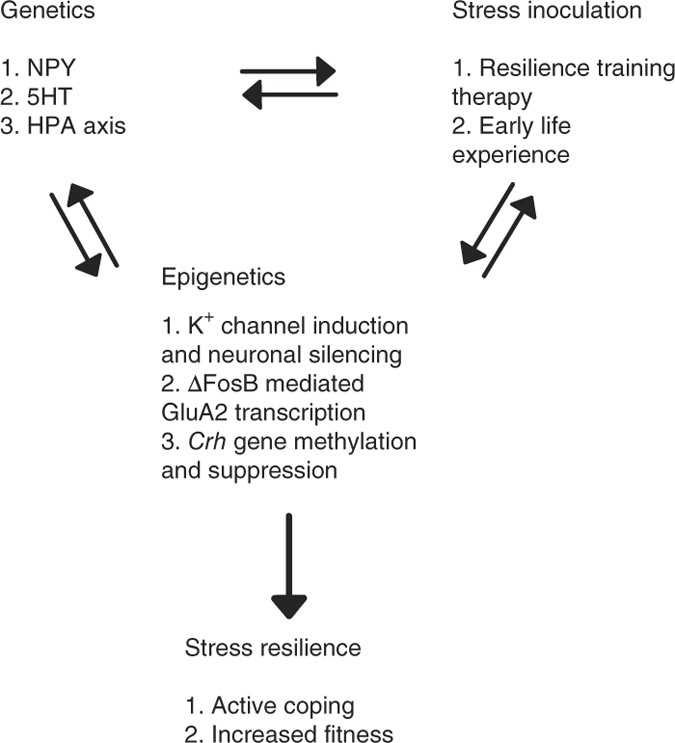
Resilience is not something that can be developed overnight. It is a mental and psychological endurance that needs to be inoculated through training and adaptation. Building resilience in everyday life requires a conscious effort to face and overcome stressors, allowing for personal growth and development.
One way to build resilience is by embracing challenges and setbacks as opportunities for growth. Instead of viewing them as obstacles, see them as chances to learn and improve. This mindset shift can help develop the ability to bounce back from adversity and find new solutions to problems.
Another important aspect of building resilience is cultivating a strong support system. Surrounding yourself with positive and supportive individuals can provide the emotional and psychological support needed during difficult times. Having someone to lean on can help alleviate stress and provide a sense of security and belonging.
Practicing self-care is also crucial for building resilience. Taking care of your physical, mental, and emotional well-being is essential for maintaining a strong foundation. Engaging in activities that bring joy and relaxation, such as exercise, meditation, or spending time with loved ones, can help reduce stress and increase resilience.
Lastly, building resilience in everyday life requires embracing change and adaptation. Life is full of unexpected twists and turns, and being able to adapt to new situations is key to building resilience. By developing a flexible mindset and being open to new experiences, you can enhance your ability to navigate challenges and bounce back from adversity.
In conclusion, building resilience in everyday life is a continuous process that involves training and adaptation. By embracing challenges, cultivating support systems, practicing self-care, and embracing change, individuals can develop the psychological endurance needed to effectively cope with stress and bounce back from adversity.
Identifying and Managing Stressors

One of the first steps in building resilience and developing stress inoculation is identifying and managing stressors. Stressors can be external or internal factors that cause mental or emotional strain. By recognizing these stressors, individuals can develop strategies to effectively cope with and adapt to them.
External stressors can include work-related pressures, financial difficulties, relationship problems, or major life events. These stressors can be identified by examining one’s daily life and noting any recurring sources of stress. Once identified, individuals can work on finding ways to reduce or manage these stressors, such as seeking support from friends or family, seeking professional help, or making lifestyle changes.
Internal stressors, on the other hand, can include negative self-talk, perfectionism, unrealistic expectations, or self-imposed pressures. These stressors can be more challenging to identify as they are often deeply ingrained in one’s thought patterns and beliefs. However, through self-reflection and self-awareness, individuals can begin to recognize these internal stressors and develop strategies to reframe negative thoughts, set realistic expectations, and practice self-compassion.
In addition to identifying stressors, it is important to build endurance through stress inoculation training. This involves gradually exposing oneself to stressors in a controlled manner, allowing for adaptation and increased resilience over time. By intentionally exposing oneself to manageable levels of stress, individuals can develop the skills and coping mechanisms necessary to handle more significant stressors that may arise.
Overall, identifying and managing stressors is a crucial step in building resilience. By recognizing external and internal stressors, individuals can develop strategies to effectively cope with and adapt to these challenges. Through stress inoculation training, individuals can build mental endurance and develop the necessary skills to handle stress in a healthy and productive way.

I am Patrina de Silva, a psychologist and mental health blogger in Sri Lanka. After obtaining psychology degrees from the University of Colombo and Monash University, I returned home to work as a counselor while also starting the popular blog “Pressy but Happy” to provide advice on psychological issues. Over the past decade, my empathetic articles have made my blog a leading mental health resource in the country. In addition to writing, I maintain a private therapy practice, frequently volunteer counseling time, and conduct seminars, driven by my passion for destigmatizing mental illness and educating the public on the mind-body connection. I strive to be an influential voice in my field through my compassionate approach.
